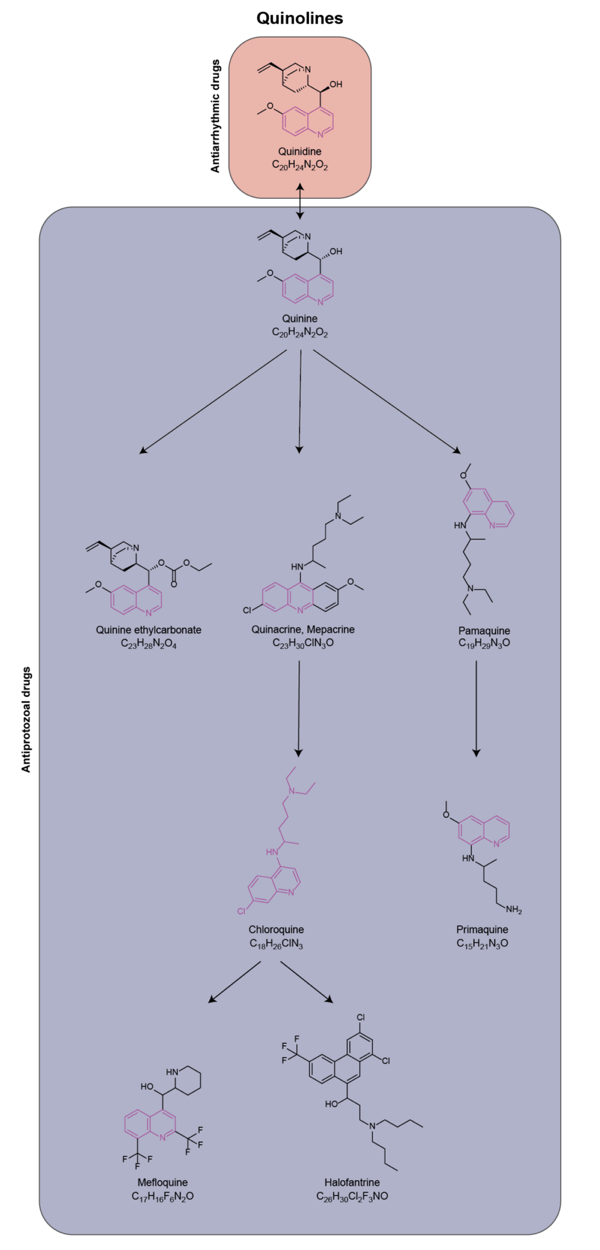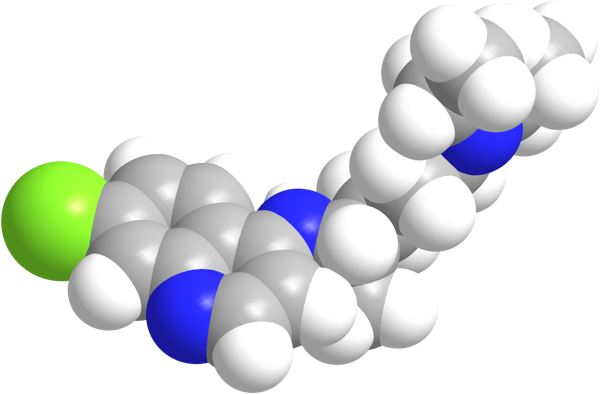 I got curious.
I got curious.
There has been a lot of wailing and gnashing of teeth about this drug.
Yes, it’s a drug and guess what, it’s listed as an essential drug by the World Health Organization.
OMG! You mean Trump didn’t just pull it out of his ass?
Nope! He didn’t. Before you go off on the other now debunked report that Trump has stock in manufacturers of this drug, Just STOP!
I knew it’s primarily used as an anti malarial drug. But Malaria is caused by a parasite, not a virus. Hmmm, so what the hell?
Well it turns out that it’s also used for autoimmune diseases like rheumatoid arthritis and lupus erythematosus. Why? because Chloroquine has a depressing effect on the immune system.
Wait a minute… If it depresses the immune response it makes no sense to use it with a viral infection. If someone is sick, it’s counterintuitive to actively depress their immune system.
Chloroquine has been known since 1934. Its analog organic origin was originally obtained from tree bark by the indigenous people of Peru, before 1633. They used it as an extract to fight fever and chills. It was introduced to Europe after 1633 as a treatment against Malaria. It was called Quinine.
While I was in the shower, My head locked on quinine. That was familiar to me and I knew it was in my household I just couldn’t place it. Another minute researching with Wikipedia and BOOM!
Same bark, same tree, same indigenous people and known to the Spanish as early as 1571 to have medicinal properties.
Cinchona bark was exported by the Spanish to Europe, Remijia bark produces lower quantities of Quinine but has a stronger taste. It’s used to flavor Tonic Water.
Don’t you Gin & Tonic drinkers get too excited, the levels are a bit too low to be medicinal. However, essentially you’ve got 400 years of research on Quinine.
Chloroquine is a synthetic with a different chemical signature, that came into wide use around 1947.
Naturally occurring quinine is C20H24N2O2. Chloroquine is C18H26ClN3 They’re different but similar chemistry. Chloroquine is a synthetic analog of Quinine.
You have to read much further into the article to find out how all this relates to Coronavirus.
 By the way, the Wikipedia article is here.
By the way, the Wikipedia article is here.
Fairly late in the article there’s an explanation of the antiviral effects of Chloroquine.
Because of the way Chloroquine affects the PH of organelles within a cell it tends to prevent a virus from releasing its genetic material.
Since the virus can’t release its RNA, it can’t infect a cell to convert the cell to replicate more viruses. Chloroquine also does something to Zinc uptake in the cell which inhibits RNA functions too.
I’m not a biologist, but I know that the basic way a virus reproduces is by hijacking the DNA of a cell, essentially reprogramming the cell to stop doing normal cell stuff and start using all the cellular resources to make viruses. It does this by putting its RNA into the cell. That’s how it reprograms cellular function.
When the cell runs out of resources it dies, then the cell membrane ruptures releasing all the viruses its built into surrounding cells. That’s how the infection continues.
So if you’re able to prevent the virus from hijacking healthy cells to begin with, you end the infection. The body then has time to identify and destroy the inert virus material floating around.
Remember DNA and RNA are related and if memory serves, interact during cellular reproduction.
Since Chloroquine is absorbed quickly by the body and is distributed rapidly in the bloodstream it’s like a big off switch to the virus invasion. That’s possibly why so many people have reported that they or their loved ones were on death’s door and had such amazing recoveries after being given Chloroquine.
The news isn’t all rosy. Chloroquine can have nasty side effects and it can become toxic easily. That’s why careful monitoring is required and only doctors prescribe it. It also can interact with other drugs and cause other problems.
The side effects of the drug are many, and include problems with vision, nausea, vomiting, abdominal cramps, headache, diarrhea, shortness of breath, muscle weakness and the list goes on.
Make no mistake Chloroquine is a powerful drug and as with any powerful medication there is a possibility that it could cause more harm than good.
That being said. If I’m on my deathbed, what the hell do I have to lose?
So in conclusion, this is a drug that’s been around for many years. Its effects are fairly predictable and its side-effects and countermeasures are well known and researched.
All the information about the drug is readily available on the internet in less than five minutes (even if you misspell the name).
There are two versions of it. One is Chloroquine and the other is Hydroxychloroquine I don’t know, and am not qualified, to evaluate the differences or provide explanation as to why there are variations. However both appear to have been derived from a 400 year old, or older natural organic remedy called Quinine.
It may be something as simple as one is more effective or easier on the system.
Apparently, Chloroquine was investigated during the SARS outbreak and there was a report published that is appeared to have efficacy against SARS in vitro.
SARS is also caused by a Coronavirus.
It’s entirely logical that the medical people would have gone back to the publications and research done on any Coronavirus, looking for something that would be effective at least in slowing Coronaviruses to buy time during treatment. Remember slowing the progress of a disease gives the body time to construct an immune defense.
This information would have been presented to the President and his advisors when coronavirus first hit the world stage. The President probably shouldn’t have been as excited about the possibility of an untested treatment. But he at least was able to tell the American people that all was not lost, coronavirus infection was not a death sentence and to have hope.
Yes, there haven’t been any clinical trials yet. Clinical trials take time. Half the group you give the drug, and half the group you give a placebo then you tally the results to determine effectiveness.
Tell me, how many of you would want to participate in a clinical trial during a pandemic? How many of you would want to be sick and be getting sugar pills instead of something that at least anecdotally was working?
Uh huh, I didn’t think so…
Now can we please stop all the bitching and complaining about the President saying anything about Chloroquine or Hydroxychloroquine?
The other question I have is this… If a dumbshit like me can look up this information and understand in at least a rudimentary way how the drugs work;
WHY THE HELL CAN’T PROFESSIONAL JOURNALISTS?
Just saying…
